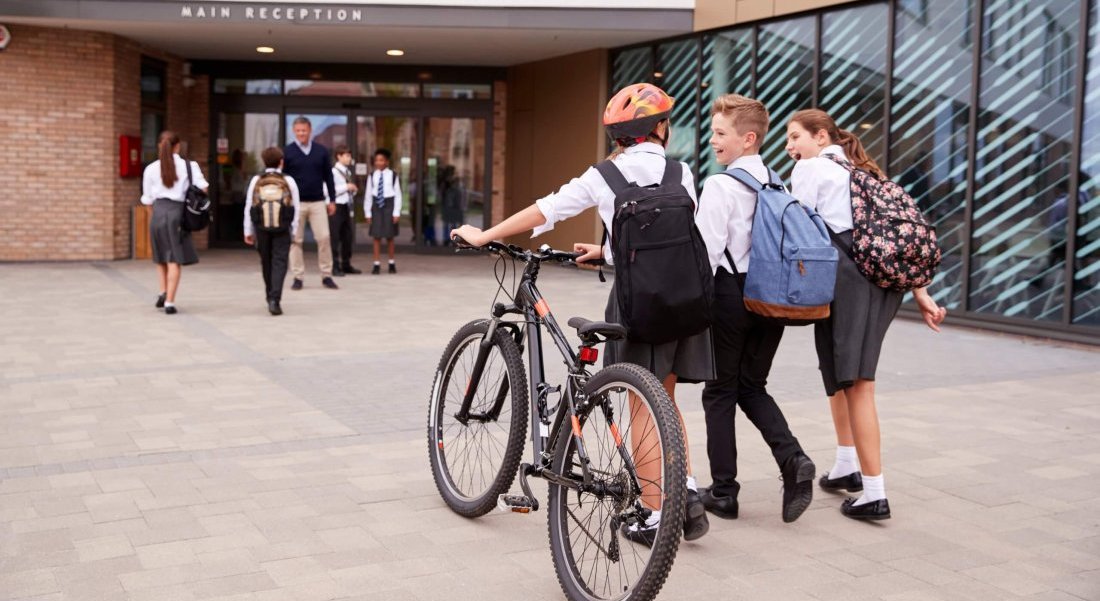22nd August 2024
So here we are, confirmation that VAT on school fees will apply to fees for terms commencing on or after 1 January 2025. In addition, we also have some draft legislation so we can finally comment on the proposals as opposed to speculating what they might be.
How has the Government done this?
The supply of education, vocational training, and closely related goods and services was exempt when supplied by an eligible body. Schools within the meaning of the various Education Acts that cover the UK were defined as eligible bodies.
What the Government has done is to draft an ‘Exception’ to this legislation so that it now says that the supply of education and vocational training is exempt except when it is supplied by a private school. It then goes on to define what a private school is. In essence, it defines it as a school at which full time education is provided for pupils of compulsory school age, or for persons over school age but under 19 to cover sixth form colleges.
This means that VAT becomes chargeable in the academic year that pupils turn five, not from the day or term in which they become five (Reception). In Northern Ireland education becomes compulsory at four.
Nursery provision
In setting this age limit the Government has opened the door for nursery provision to remain exempt and, indeed, the Treasury’s Technical Note confirms that this is the case and that it applies to both standalone nurseries and nurseries attached to private schools.
Special Educational Needs
Far less helpfully, the Government has announced that any pupil with Special Educational Needs (SEN) in a private school will be subject to VAT on their fees.
They make much of the fact that where such a pupil has an Education, Health and Care Plan (EHCP), or the Scottish and Welsh equivalents, then the Local Authority (LA) can recover the VAT they are charged. This is not some generous relief, simply the normal operation of Section 33 of the VAT Act which allows LAs to reclaim VAT, and it overlooks the fact that getting an EHCP is a time consuming and difficult process.
Closely related goods and services
The other interesting thing about the way the legislation is drafted is that, with one exception, it continues to allow closely related goods and services to remain exempt. That exception is board and lodging which is closely related to a supply of education or vocational training.
That means that other closely related supplies of goods and services can continue to benefit from their previous treatment as exempt.
The only comment that the Note makes is to say that any attempt at value shifting will be challenged so you could not, for example, say that 95% of your fees relate to the provision of school meals and only 5% to fees.
This throws up a number of queries which have yet to be addressed, although additional guidance is due to be issued by HMRC in due course. Firstly, the Note says that these closely related goods and services can remain exempt and gives as examples, school meals, transport, and books and stationery. This overlooks the fact that whilst HMRC accepts transport and books as being supplies which are closely related to education, and thus capable of falling within this exemption, transport in a vehicle with a capacity of 10 or more and the supply of books are also zero-rated. There is a provision in VAT law which says that when a supply is capable of being exempt and zero-rated, then zero-rating takes precedence.
In addition, there is a well established concept in VAT law regarding what are known as composite supplies. A composite supply can arise where you have a principal supply of something and one or more supplies which are ancillary to that principal supply and as case law has held are simply means to better enjoy that principal supply.
Where you have a composite supply, then the ancillary supplies take on the same VAT liability as the principal supply. In a sense it is akin to the force of gravitational attraction pulling in the ancillary elements.
So, whilst the draft statute law says closely related supplies like school meals can continue to be regarded as exempt, the provision of school meals alongside education would almost certainly be regarded as a composite supply, such that the meals would become subject to VAT.
It may be unlikely that many schools would want this, but some schools might wish to minimise the value of their exempt supplies to maximise input tax recovery, so it will be interesting to see how the Courts would view this apparent conflict.
Before and after school activities
Where additional education is supplied, for example music lessons, sports coaching or additional language tuition, then this will be subject to VAT as education.
Before and after school clubs looking after pupils who have been dropped off by their parents, or who are awaiting pick up, and which are essentially childcare rather than supplying education can be treated as exempt welfare.
Where the Note muddies the water is that it says that where there is an extra-curricular club such as a football club where children are not being coached or otherwise taught how to play football but are playing with their peers and are supervised then it seems to imply that VAT should be chargeable on this (though it does not actually say so).
I cannot see any difference between this and any other type of after school club which is essentially childcare, as presumably Health & Safety legislation would require the presence of an adult in case of accidents.
VAT registration
The Note says that where schools do not currently make any taxable supplies, they will be allowed to register from 30 October 2024.
Any school which has any taxable supplies at all has an absolute entitlement to register for VAT before that date on a voluntary basis. But if it does, then it will need to start to charge VAT on these existing taxable supplies earlier than they might otherwise have to.
Whilst the Note says that additional support will be put in place to ensure all schools can register before 1 January 2025, there has to be some doubt surrounding this given HMRC’s recent performance levels around VAT registrations. Schools who have an entitlement to register might want to think about submitting an application to register prior to 30 October but requesting an effective date of registration of say 1 January or 1 December if, as most will, they issue their January term fees in December.
When applying for registration, schools will want to ensure they request a return stagger which suits them, so if they want it to be coterminous with their Financial Year, then most will want to request a February/May/August/November return stagger.
In addition, the time when partial exemption annual adjustments and Capital Goods Scheme (CGS) calculations become due is driven off the ‘tax year’. The tax year ends in the Spring VAT return quarter, but HMRC does have the power to allow a different tax year. If you request a return stagger with a May VAT return, then your partial exemption annual adjustment can be carried out in either that quarter or the August one, unless you specifically request a tax year ending in August, where it could be declared in either the August or November returns.
This is often overlooked with organisations automatically assuming they do their annual adjustment at their financial year end. But do not rush to ask for a different VAT year in case you inadvertently lose the ability to make a CGS adjustment. For example, a May VAT year would mean you could make adjustments for CGS items brought into use on or after 1 June 2016, but an August one would mean you could only go back to September 2016.
I would add that it is not only businesses who overlook the tax year since one of my clients was recently advised by HMRC that their tax year ended on 31 November, and when I last looked, there was no such day!
Fees In Advance
As expected, anti-forestalling measures were announced which means that all payments of fees made after 29 July 2024, but which relate to the term starting in January 2025, will be subject to VAT.
Whilst expected, it is a shame that the Government broke with tradition here where such measures usually take effect from midnight on the day they are announced as this means that any parent who happened to make a prepayment of fees on the morning of 29 July before the announcement was made in the afternoon will be caught by the measure.
The other comment made by the Treasury is that they note that whilst in principle, they accept that a prepayment will have crystallised a time of supply or tax point, they go on to say that in many cases the structure of a Fees In Advance (FIA) scheme will not have been effective in setting the time of supply if the details of the supplies were not determined when the money was paid. They go on to say that by this they mean if the money paid did not relate to specific terms’ fees which had been set.
This would mean that virtually all FIA schemes are at risk since, whilst most schemes estimate future likely fee increases, very few will be able to set them in stone in case, for example, there is another sudden energy crisis.
It would also, for example mean that a parent who made a prepayment for seven years five years ago when there was no serious prospect of VAT being applied to school fees would, in effect, be hit with a retrospective tax.
I can see no legal basis in trying to argue that a parent who had made an advance payment for their child’s education was not clear about what they were buying simply because the precise amount which would be due in five years was not known, and they expected to pay additional amounts to cover any fee increase.
It seems to me that this is an attempt to bully schools since no matter how silly an argument this might be, HMRC can take it knowing that if they lose, they can appeal to the Upper Tribunal, and then the Court of Appeal and Supreme Court, knowing that they have the infinite resources of Government which even the wealthiest of independent schools may not have.
It can only be hoped that schools will work together in the event that HMRC does seek to make such challenges.
For further advice around how we can help, please visit our VAT on School Fees page here, or contact Phil Salmon, Partner and Co-Head of VAT.





